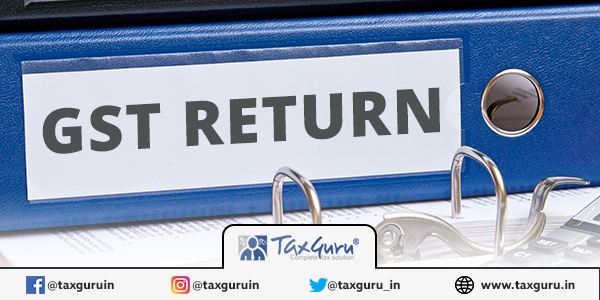Taxation of Long Term Capital Gain (LTCG) on Listed Equity Shares (considering the amendments of through Budget 2017 & proposed in Budget 2018)
Section 10(38) of Income-tax Act, 1961 (the Act) was introduced through the Finance Act, 2004 with the aim to simplify the tax regime on the security transactions and to attract the investors of the whole Globe to invest in Indian Capital Market. The relevant portion of the Budget Speech – 2004 of Hon’ble Former Finance Minister Shri P. Chidambaram is as under;
Capital gains tax is another vexed issue. When applied to capital market transactions, the issue becomes more complex. Questions have been raised about the definitions of long-term and short-term, and the differential tax treatment meted to the two kinds of gains. There are no easy answers, but I have decided to make a beginning by revamping taxes on securities transactions. Our founding fathers had wisely included entry 90 in the Union List in the Seventh Schedule of the Constitution of India. Taking a cue from that entry, I propose to abolish the tax on long-term capital gains from securities transactions altogether. Instead, I propose to levy a small tax on transactions in securities on stock exchanges. The rate will be 0.15 per cent of the value of security. Thus, a transaction involving securities valued at, say, Rs. 100,000 will now bear a small tax of Rs.150. The tax will be levied on the buyer. In the case of short-term capital gains from securities, I propose to reduce the rate of tax to a flat rate of 10 per cent. My calculation shows that the new tax regime will be a win-win situation for all concerned.
……….. para 111 of Budget Speech 2004
With the passage of time, the peoples start misusing this exemption to convert their unaccounted money into accounted. Therefore, recently there were several amendments made in the Act through the Finance Act, 2017 and several amendments are also proposed through the Finance Bill, 2018. Therefore, for the purpose of analysing all the amendments (including proposed amendments through the Budget 2018) the comprehensive write up required to measure and understand the changes made / proposed for the taxability of LTCG on listed equity shares.
Before the Budget 2017, the LTCG arise on the listed equity shares was exempt from the Income Tax with only single condition that the STT must have been paid on the sales of the transaction of the such equity shares. However, Department noticed that exemption provided under section 10(38) of the Act is being misused by certain persons for declaring their unaccounted income as exempt LTCG by entering into sham transactions. Many judgements of various court were also pronounced in favour of assessee on account of LTCG on penny stocks.
With a view to prevent this abuse, the Government amended section 10(38) of the Act in Budget 2017 to provide that exemption under this section for income arising on transfer of equity share acquired or on after 1st day of October, 2004 shall be available only if the acquisition of shares is also chargeable to STT (Chapter VII of the Finance Act, 2004). Therefore, after the said amendments, to claim the exemption u/s 10(38) of the Act, it is also mandatory that the transaction of acquisition is also carried through recognised stock exchange and STT should have been paid on such acquisition.
However, with the view to protect the exemption for genuine cases where the STT could not have been paid like acquisition of share in IPO, FPO, bonus or right issue by a listed company acquisition by non-resident in accordance with FDI policy of the Government etc., the Government notified (Notification 43/2017, Dated 05/06/2017) some transactions of acquisition on which even the STT was not paid, the exemption u/s 10(38) of the Act would be available. Please click here for detailed analysis of said amendment.
Even after regulating the exemption available under section 10(38) through the Finance Act, 2017, the Government felt it is necessary to bring such LTCG in tax net in order to avoid such abuse of exemption. Through the Finance Bill 2018, now it is proposed to bring such LTCG in the tax net by taxing such LTCG exceeding Rs. 1 lakh at the rate of 10% without allowing the benefit of any indexation. The relevant portion of the Budget Speech – 2018 of Hon’ble Finance Minister Shri Arun Jaitley is as under;
Madam Speaker, currently, long term capital gains arising from transfer of listed equity shares, units of equity oriented fund and unit of a business trust are exempt from tax. With the reforms introduced by the Government and incentives given so far, the equity market has become buoyant. The total amount of exempted capital gains from listed shares and units is around Rs. 3,67,000 crores as per returns filed for A.Y.17-18. Major part of this gain has accrued to corporates and LLPs. This has also created a bias against manufacturing, leading to more business surpluses being invested in financial assets. The return on investment in equity is already quite attractive even without tax exemption. There is therefore a strong case for bringing long term capital gains from listed equities in the tax net. However, recognising the fact that vibrant equity market is essential for economic growth, I propose only a modest change in the present regime. I propose to tax such long term capital gains exceeding Rs. 1 lakh at the rate of 10% without allowing the benefit of any indexation. However, all gains up to 31st January, 2018 will be grandfathered. For example, if an equity share is purchased six months before 31st January, 2018 at Rs. 100/- and the highest price quoted on 31st January, 2018 in respect of this share is Rs. 120/-, there will be no tax on the gain of Rs. 20/- if this share is sold after one year from the date of purchase. However, any gain in excess of Rs .20 earned after 31st January, 2018 will be taxed at 10% if this share is sold after 31st July, 2018. The gains from equity share held up to one year will remain short term capital gain and will continue to be taxed at the rate of 15%. Further, I also propose to introduce a tax on distributed income by equity oriented mutual fund at the rate of 10%. This will provide level playing field across growth oriented funds and dividend distributing funds. In view of grandfathering, this change in capital gain tax will bring marginal revenue gain of about Rs. 20,000 crores in the first year. The revenues in subsequent years may be more.
……….. para 155 of Budget Speech 2018
The above amendment will be effective from the AY beginning on or after 01/04/2019 and consequently will apply for the AY 2019-20 (i.e. the transactions of transfer of share made on or after 01/04/2018).
To coverup all amendments made through the Finance Act, 2017 and proposed through the Finance Bill, 2018, the author hereunder furnish the table containing the income tax treatment of the LTCG arise on account of transfer of listed equity shares under eight different situations;
Before going through with the table, please note of following presumptions;
- Share denote “Equity Shares”
- Gain in every situation mentioned hereinunder are in nature of LTCG
- Share are sold on Recognised Stock Exchange
- The status of the taxpayer is “Resident”
Taxation of LTCG on Equity Shares (considering the amendments of through Budget 2017 & proposed in Budget 2018) under Different Situations
Sr. No. |
Particulars |
Situation |
|||||||
a |
b |
c |
e |
f |
g |
h |
i |
||
1 |
Shares Transferred / Sold |
on or before 31/03/17 |
on or after 01/04/17 but before 31/01/18 |
on or after 01/02/18 but before 31/03/18 |
on or after 01/04/18 |
on or before 31/03/17 |
on or after 01/04/17 but before 31/01/18 |
on or after 01/02/18 but before 31/03/18 |
on or after 01/04/18 |
2 |
Date of Acquisition |
01/04/15 |
01/04/15 |
01/04/15 |
01/04/15 |
01/04/15 |
01/04/15 |
01/04/15 |
01/04/15 |
3 |
Whether STT was paid on acquisition (OR) Acquired by the way of exceptions prescribed under the Notification No. 43/2017, Dated 05/06/2017 |
Yes |
Yes |
Yes |
Yes |
No |
No |
No |
No |
4 |
Whether STT was paid on sales transaction? |
Yes |
Yes |
Yes |
Yes |
Yes |
Yes |
Yes |
Yes |
5 |
Purchase Value |
1,000 |
1,000 |
1,000 |
1,000 |
1000 |
1,000 |
1000 |
1,000 |
6 |
Sales Value |
1,200 |
1,200 |
1,200 |
1,200 |
1,200 |
1,200 |
1200 |
1,200 |
7 |
Value as on 31/01/2018 |
N.A. |
N.A. |
1,100 |
1,100 |
N.A. |
N.A. |
1,100 |
1,100 |
8 |
Long Term Capital Gain |
200 |
200 |
200 |
100 |
200 |
200 |
200 |
100 |
9 |
Benefit of Section 10(38) exemption available? |
Yes |
Yes |
Yes |
No |
Yes |
No |
No |
No |
10 |
Benefit of Indexation Available? |
Irrelevant |
Irrelevant |
Irrelevant |
No |
Irrelevant |
Yes |
Yes |
No |
11 |
Taxable gain taxed u/s 112A 10% (subject to exemption upto Rs. 100000) |
N.A. |
N.A. |
Not Appl. |
100 |
N.A. |
N.A. |
N.A. |
100 |
12 |
Taxable gain taxed u/s 112 (subject to exemption upto Rs. NIL) |
N.A. |
N.A. |
N.A. |
N.A. |
N.A. |
200* |
200* |
N.A. |
* at the option of the assessee, such gain would be taxed either at 10% without indexation benefit or at 20% with indexation benefit.
The Author is a Chartered Accountant and can be reached at harchandanimanish@gmail.com, Reader’s feedback / observations are welcomed and would be appreciated.
Disclaimer: The contents of this document are solely for informational purpose. It does not constitute professional advice or a formal recommendation. While due care has been taken in preparing this document, the existence of mistakes and omissions herein is not ruled out. Neither the author nor Taxguru.in and its affiliates accepts any liabilities for any loss or damage of any kind arising out of any inaccurate or incomplete information in this document nor for any actions taken in reliance thereon.
























Opinion: Tax on all sort of gains on share value increase and dividend is a double taxation. Please share your views:
In my opinion all sorts of gains on equity shares and dividend should be tax free. 1) Taxing gain on shares is a sort of double taxation. How: Shares represent ownership of company and shares value is representative of current and future retained earnings. As retained profits increases share value increases as in event of company closure share holder is going to get retained earnings. So accordingly based on current and future retained earnings share value takes it’s course.
Since retained earnings are already taxed, taxing gains on shares value is double taxation.
2) Dividend is also distribution from after tax profits. There should not be any tax on dividend (neither DDT nor tax from shareholder).
Government should tax agriculture income under which all big people hide and evade tax. There is no reason for not taxing agriculture income as you are only taxing income beyond exempt threshold.
If possible should populate it at maximum forums.
Reader may download above article in pdf format by clicking following link.
https://drive.google.com/open?id=1tEeyL72UCyYWPxe3-wd9UGbu9iJQ7K3s
Sir,
As per CBDT FAQ, 10(38) exemption is available on shares sold between 1 Feb 2018 to 31 March 2018. Refer Q 11.
Regards